What 2021 Could Mean For Esports
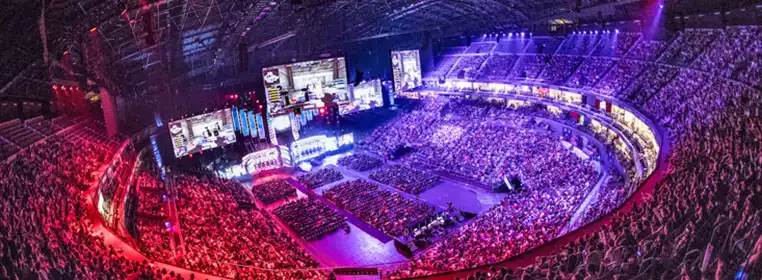
Many people, if asked about esports, would gladly list their favourite teams, games, and streamers in a heartbeat. With such a vast stake in the multi-million dollar gaming industry, it is easy to understand why esports has such a massive influence on society as a whole. However, knowing where esports started off puts a lot of that influence into perspective.
Esports went from being an obscure medium to one of the most popular household activities in a span of only eight months. With the onset of the COVID-19 pandemic, many people turned from in-person events to esports for their entertainment. What started as a hindrance to many technology and sports teams proved to be a massive boost, once the potential of esports was realised. There is a reason why gaming and esports have both entered the mainstream consciousness, as even advertisers and sports teams are getting into the lucrative industry.
Esports is not new. It has been around for the past several years, a dedicated group of competitors keeping it alive. Back in 2014, esports was droves smaller than it is today, with the most enthusiasm centred around Counter Strike: Global Offensive (CSGO), Team Fortress 2, DOTA, and League of Legends. These games had a relatively niche audience, especially compared to today. Streamers and personalities whose careers centred on these games primarily found their careers on Twitch and YouTube. Tournament earnings and prize pools were significantly smaller back then, and with less sponsorship deals for gamers than there are today, many relied on Twitch partnership or YouTube ad revenue to survive.
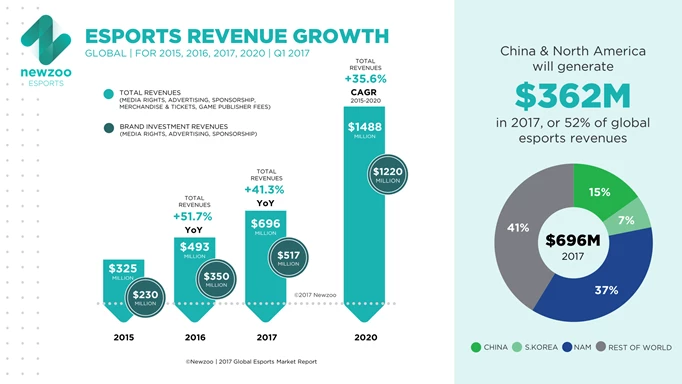
 Click to enlarge
Click to enlargeThe esports scene remained like this for years, with most of the public's attention solely directed to FaZe clan and other huge influencer networks. Many did not know as much about the competitive scene, or any of the players that dominated it. Even in 2019, when esports was growing due to the success of giants like Fortnite and Overwatch, it still remained a subculture within the broader subculture of gaming. Despite numerous worldwide tournaments and events, esports was still relatively unknown in the eyes of the public.
This all changed in 2020 due to absolutely unprecedented circumstances. A worldwide lockdown effort due to COVID-19 caused the world's attention to shift. With jobs becoming remote, school phasing into online coursework, and public events shuttered, people were searching for entertainment elsewhere. It seemed as if every major industry was affected negatively by the lockdowns - except for esports. Esports experienced instantaneous growth once the lockdowns were in full effect.
With no live sports to show, sports and news networks, some of them for the first time in history, were airing esports. NBA 2k20 and FIFA 2020 were some of the games that gave the public their first taste of esports. Next was F1 2019, with its highly-publicised post-lockdown tournaments.
The biggest issue esports faced, at the time, was how to temporarily phase out in-person tournaments and phase-in remote ones. This caused many events to shutter, such as the Fortnite World Cup. Many tournaments that relied on LAN to function also had to determine a way to temporarily restructure their events around the lockdowns. Many tournaments were postponed or called off due to the fact that there was no way to effectively moderate cheating in a fully-online event.
Cheating was an issue that ran rampant in many esports tournaments until anti-cheat programs were either strengthened or added to the game. An example includes Kona's FNCS cheat exposure and the fallout it generated. Even games like Fall Guys, with its short, competitive minigames, were not safe from cheating. In fact, Fall Guys had to implement Easy Anti-Cheat, the same anti-cheat software used by Epic Games, in order to stop all the cheaters from stealing matches from players that had earned them.
After a rocky start, fully-online tournaments finally started to get off the ground. Rocket Leagues' Winter Split Regionals are a testament to this, as well as the plethoras of other online tournaments taking place across the esports scene. With even online tournaments finding success despite the lockdown efforts, the gaming public is more excited than ever for 2021.
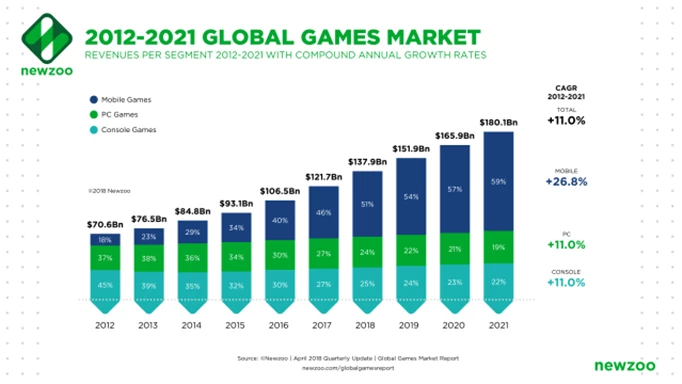
 Click to enlarge
Click to enlarge2021 is the supposed end to the lockdowns and COVID-19 quarantine efforts, which gamers and esports enthusiasts alike are looking forward to. This means that tournaments, like the much-anticipated 2021 Fortnite World Cup, are in the works and slotted to take place next year. With plenty of time for skills to develop, tournament-goers and esports professionals are looking forward to facing off against brand-new opponents and old rivals.
Massive changes have come to the esports industry this year, as well, making its fully-public return even more exciting. With numerous new sponsorship deals and various sports teams and organisations creating their own esports divisions, there is no shortage of new competition. The public has also had its chance to get involved in the world of esports, as recognisable brands such as KFC and LG create its own esports and gaming teams. Sponsorship deals from large companies are on the rise, as well. Among the many popular sponsorships between brands and gaming are Bumble's sponsorship of a female Fortnite team and Puma's brand deal with esports team Cloud 9.
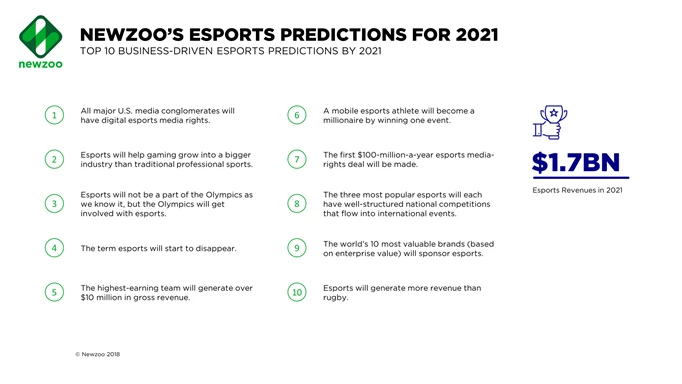
 Click to enlarge
Click to enlargeThese sponsorships and brand deals have only become more prevalent in the esports community, as companies begin to realise what a massive hold esports has on the young adult generation. This publicity has caused esports to become more lucrative to streamers, tournament participants, and esports teams alike. With less reliance on monetisation from YouTube and other platforms, streamers are able to make their own business decisions, contracts, and even their own hours. This gives them time to perfect their craft and even build their own esport brand. Streamers like Turner Ellis "Tfue" Tenney and Richard Tyler "Ninja" Blevins have seemingly perfected this brand recognition, and they serve as many peoples' gateway into the world of esports.
With 2021 just around the corner, it's exciting to think of where esports will go. Just this year alone, it has seen unprecedented and unparalleled growth as more people go online for entertainment. According to Newzoo.com, in Europe alone, the esports audience grew by 92 million people. According to estimates by Influencer MarketingHub, the current audience size estimate for the global esports community is 496 million, which is half of a billion people total. This is unbelievable, especially due to the nearly fringe status of esports only five years prior.
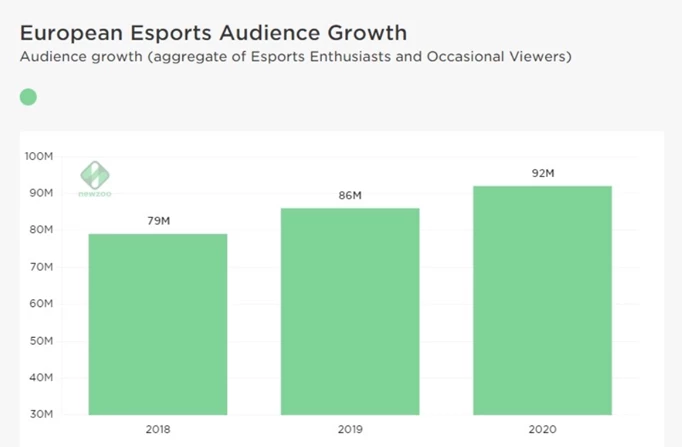
 Click to enlarge
Click to enlargeInfluencer MarketingHub also reports that global awareness of esports is on the rise in 2020. Their report claims that two billion people are currently aware of the esports industry, whether that be through social media, advertising, or popular culture. This incredible growth will undoubtedly lead to brand and team recognition, influencer audience growth, and increased tournament turnout. With more people than ever exposed to esports, the potential for an even bigger turnout in 2021 is almost certain.
Esports did what no other industry did during the lockdown - it strategised, set goals, and met them. Thus, it was the biggest market for job security, viewer turnout, and an increase in revenue during the coronavirus pandemic. Because of the great efforts made by marketers, strategists, streamers, and influencers, the public is now more aware of esports than it ever was. The industry flipped a bad situation on its head to create something even better- a new future for the world of both esports and gaming.
This brings us to 2021 and where it will lead esports. The community is more optimistic than ever, excited for in-person tournaments and familiar venues to open their doors once more. With an even bigger stronghold in the gaming industry than it previously had, esports is set to make a huge return to the public scene once the world reopens. With massive tournaments planned, brand deals set in place, and a huge base, esports will be even more massive than it was when the pandemic started.
Even if things don't open on time in 2021, esports will still prosper, continuing to garner a huge fanbase, despite the lockdown efforts. This fanbase will allow the industry to profit despite the hard times, which is nothing short of a miracle. With the newest generation of console wars just starting, esports will be relevant, no matter what the state of the world is. The highly-publicised esports industry definitely won't be fading into obscurity any time soon, in fact, many predict that 2020's brand deals and publicity efforts will yield even higher returns in 2021.
Esports fans and gamers alike anxiously await 2021 and all of the events it will bring with it. With so many things planned for the upcoming year, audience and player morale is at an all-time high. After perfecting their skills for the last eight months, tournament-goers are excited to put their talents to the test, and their fans are even more excited to watch them. With all of the excitement building up as the year draws to a close, 2021 is shaping up to be a truly legendary year.
Images via ESL and newzoo.com
